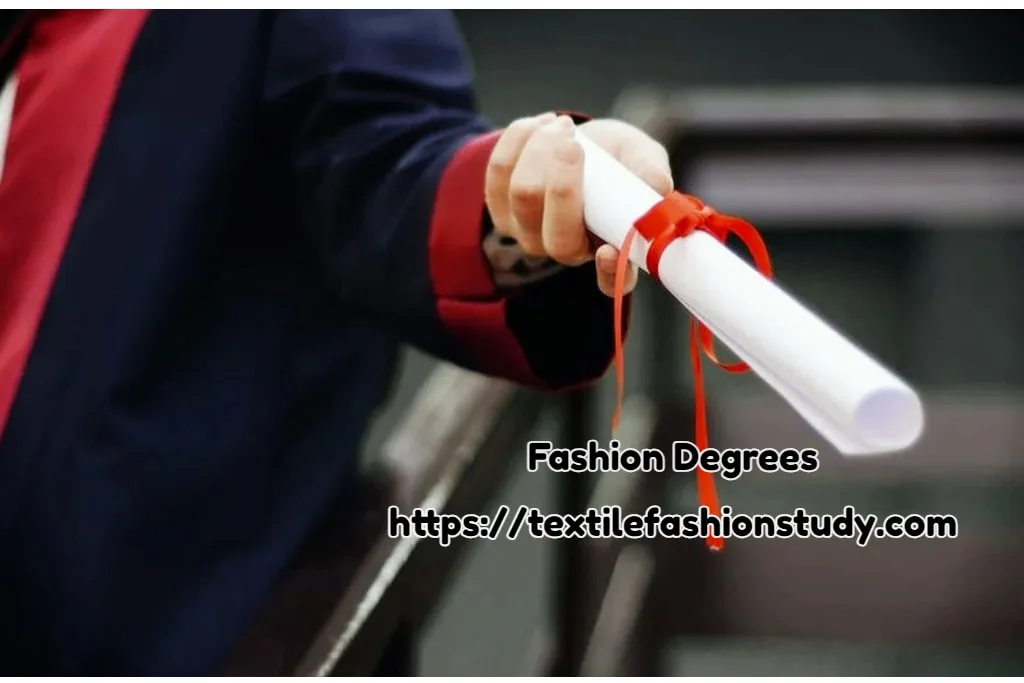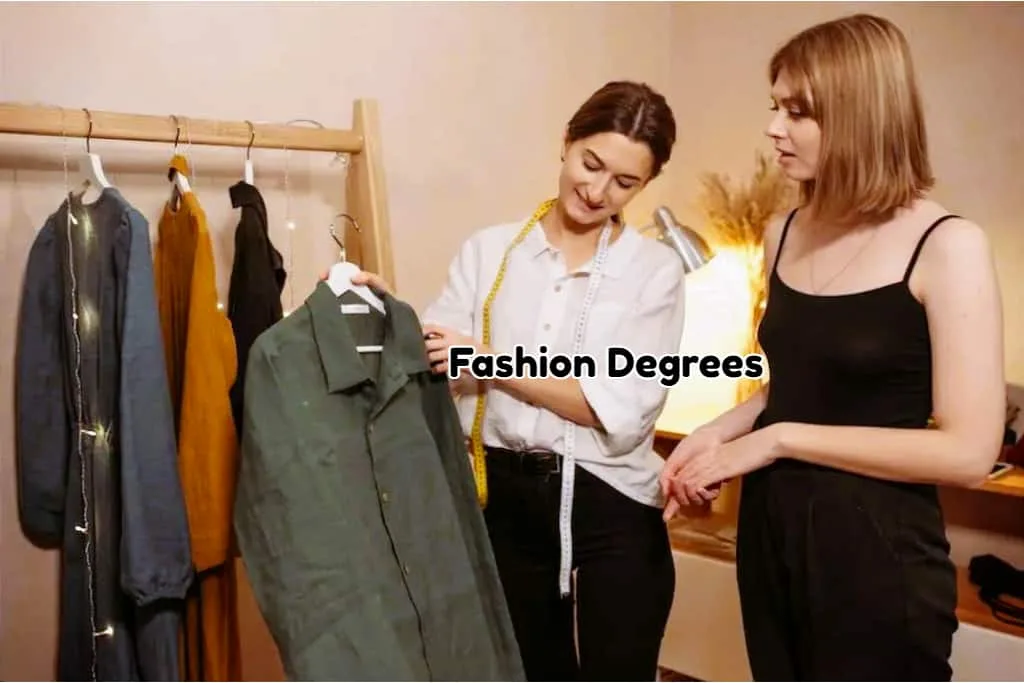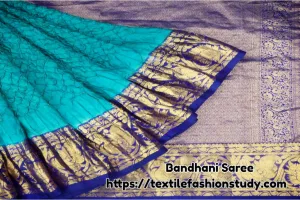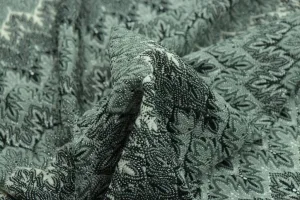Table of Contents
Fashion Degrees
Learners find fashion degrees appealing due to their rich blend of creativity, innovation, and style. There are many interesting and fulfilling employment options in the fashion industry. A degree in fashion will help you succeed, whether your goals are to design luxury brands, produce runway masterpieces, or explore specialist fields like sustainability or luxury brand management. This conversation sheds light on a variety of fashion degrees, from fashion majors to fashion companies, and offers insight into the responsibilities of each course as well as the potential career paths they may lead to. The ultimate goal is to provide aspiring fashion students with the information they need to select the degree program that will best help them achieve their professional objectives.
Types of Fashion Degrees
A fashion degree offers a wide range of theoretical knowledge and practical experience that helps people make a name for themselves in the exciting and dynamic world of fashion. Students may be guaranteed that they are at the forefront of one of the most creative, exciting, and innovative sectors in the world, regardless of the degree program they choose. Fashion degrees are offered at various institutes, colleges, and universities. The types of fashion degrees are as follows:

Bachelor’s in Fashion Design
One of the most popular fashion degrees for students who want to explore the artistry and creativity that underpin the fashion industry is a bachelor’s in fashion design. Usually lasting four years, this degree program covers a wide range of topics related to fashion design, such as textile design, pattern making, draping, sewing techniques, and fashion illustration. Studies in color theory, design principles, and fashion history are also included in the curriculum. Students can access a plethora of jobs in the fashion sector by completing this degree. A stylist, fashion illustrator, fashion designer, or textile designer are some possible career paths. Graduates can also use their expertise in adjacent fields such as cinema, television, or theater costume design.
Master’s in Fashion Merchandising
A Master’s in Fashion Merchandising is suited for individuals interested in the business side of fashion. Topics including trend forecasting, visual merchandising, buying and merchandising, and retail operations management are all included in this post-graduate degree. In the context of the fashion industry, the program also discusses marketing, financing, and sustainability. Those who earn a master’s degree in fashion merchandising are more prepared to succeed in the international fashion industry. Graduates can work in a variety of fields, including trend forecasting, fashion merchandising, retail buying, and brand management. Opportunities with PR businesses, event management organizations, and fashion periodicals that are involved in fashion shows and promotions may also present themselves to them.
Associate’s in Fashion Marketing
An associate’s degree in fashion marketing would be a good option for students who are interested in the marketing side of the fashion industry. This degree program, which typically lasts two years, teaches students how to effectively promote fashion brands and products. Fashion business, consumer behavior, fashion marketing, retail management, and visual communication are among the academic topics included in the program. After earning an Associate’s degree in Fashion Marketing, graduates are prepared to manage the public image of fashion brands, create marketing campaigns, and promote products, among other advertising and promotional tasks for fashion brands. They can be employed as fashion editors or writers for fashion magazines, as well as fashion marketers, retail managers, and public relations specialists.
Different Fashion Design Degrees
A degree in fashion design, which is recognized as a specialist learning program, focuses mostly on the art of creating stylish apparel, accessories, and shoes. Fashion history, textiles, color theory, sewing techniques, tailoring, pattern drafting, costume designing, fashion sketching, and computer-aided design (CAD) are just a few of the topics covered in this extensive course on fashion. In addition, the program integrates principles of business and marketing, equipping students to present their innovative designs and analyze market trends.
Fashion Design Majors
Many universities offer specialized programs to enable students to go deeper into their areas of interest, even if a basic degree in fashion design provides a comprehensive overview of the industry. They could include streetwear, knitwear, sportswear, menswear, womenswear, and sustainable fashion. A few institutions also offer classes on fashion enterprises or accessory creation. A specialization provides students with knowledge and abilities specific to that field of study in design.
Skills Acquired During The Course
A fashion design degree equips students with a wide range of transferable skills in addition to design techniques and creative abilities. These can include the ability to conduct research, effectively communicate, solve problems, manage projects, have knowledge of textile materials, be proficient in computer-aided design (CAD), and have a solid grasp of the fashion industry. This entails being knowledgeable about current designers, historical patterns, and international fashion markets.
Potential Career Paths in Fashion Design
Graduates in fashion design have a variety of professional options after graduation, depending on their interests and areas of specialty. Among these professions are brand managers, visual merchandisers, textile designers, pattern makers, fashion illustrators, fashion journalists, and many more. Starting their own boutique or fashion label is another option open to recent graduates.
Textile Design Degrees
Another significant subgroup of fashion degrees is textile design, which focuses on the creation and design of textiles. This calls for an understanding of production procedures, dyes, and fabrics. Students studying textile design learn how to be creative and innovative designers for a variety of applications, including apparel, interior design, and industrial use. They can focus on topics such as woven, knitted, or printed textiles.

Various Renowned Fashion Schools across the Globe
There are numerous prestigious fashion schools offering a wide range of programs all over the world. Renowned educational establishments in the US include the Fashion Institute of Technology and the renowned Parsons School of Design in New York. Reputable centers of innovation such as Central Saint Martins and the London College of Fashion are part of the University of the Arts London in the United Kingdom. Additional renowned establishments worldwide include Japan’s Bunka Fashion College, Esmod in France, and Istituto Marangoni in Italy. With their extensive fashion design programs, these trailblazing universities equip students with the knowledge and understanding needed to succeed in the fast-paced fashion industry.
Exploring Fashion Business and Marketing Degrees
The fashion industry is a complex area of work where different fashion majors play a vital role in keeping it flexible and productive. Those who pursue these degrees will be armed with a special combination of business savvy, artistic talent, and understanding of the dynamic fashion industry. Each degree program, whether it be in management, marketing, or merchandising, emphasizes how crucial it is to guiding the fashion industry’s development and progress. Fashion business and fashion marketing degrees are famous for their job scope around the world. You can explore fashion business and marketing degrees from below:
Fashion Merchandising Degrees
Fashion merchandising is one of the various routes one may take within the fashion industry, and it stands out for combining creative and pragmatic commercial features. This degree achieves a delicate balance between a deep understanding of merchandise planning, product development, and management and an artistic sensibility for fashion. A wide range of topics are usually included in the curriculum, such as marketing, visual merchandising, fashion purchasing, business law, and design aesthetics. Students get the chance to refine their analytical skills, foster their creativity, and advance their business acumen through this academic path. This broad range of abilities enables graduates to effectively manage stock inventory levels, grasp customer wants in depth, and forecast fashion trends in real time.
A variety of career opportunities are open to these individuals, including positions as product planners, visual merchandisers, and buyers of clothes. Reputable colleges that offer these courses include the London College of Fashion and the Fashion Institute of Technology in New York City.
Fashion Marketing Degrees
The fashion industry also includes fashion marketing as a crucial component. Promoting and marketing fashion creations to wholesalers, retailers, and the general public is the main focus. Digital marketing, consumer behavior, branding, fashion events management, and marketing principles are among the topics typically covered in the program. Understanding customer demands, developing engaging marketing strategies, and utilizing a variety of platforms to maximize reach are among the abilities that participants in this program will acquire. Fashion PR, brand management, marketing consultancy, and fashion event organizing are among the fields in which graduates frequently find work. Several prestigious universities offer these degrees, including the University of Manchester and the Parsons School of Design in New York.
Fashion Management Degrees
A degree in “fashion management” combines a thorough understanding of business and management techniques with an awareness of fashion. Topics including luxury management, product creation, fashion brand management, strategic management, and sustainability are frequently covered in the curriculum. Its main objectives are the development of critical thinking, leadership, and decision-making abilities. Within the fashion industry, a degree could lead to a variety of managerial roles, including manager of retail operations, manager of fashion brands, manager of fashion products, etc. Among the prestigious universities that offer these degrees are the Fashion Institute of Technology, the University of Essex, and the University of Southampton.
Various Specialized Fashion Degrees
The fashion industry is growing up, and it needs experts in the area of work. All these specialized fashion degrees aim to equip students with niche skills catering to the multi-faceted fashion industry. Potential students should carefully consider their interests and career aspirations when selecting a degree program. The following are the various specialized fashion degrees:
Fashion Sustainability
As the world becomes more environmentally conscious, a focus known as “fashion sustainability” has emerged in the fashion industry. This specialty area focuses mostly on waste minimization, ethical material sourcing, sustainable design techniques, and responsible production procedures. This course gives students a thorough understanding of the fashion industry’s environmental impact and how to reduce it through the use of sustainable textiles, zero-waste design, and circular fashion ideas. These schools prepare their graduates well for careers as corporate social responsibility managers, eco-fashion designers, or consultants on sustainability. Among the acclaimed institutions providing this essential course are Central Saint Martins in London, Parsons School of Design in New York, and RMIT University in Australia.
Luxury Brand Management
In the age of rapid fashion, knowing and building luxury brands is a unique career. Acquiring a degree in Luxury Brand Management endows students with expertise in luxury retail management, customer behavior, luxury brand communication, and marketing techniques. You become knowledgeable about the nuances of delivering an opulent experience consistent with the brand’s values.
With this degree, you can work for luxury brand companies as a public relations specialist, luxury retail buyer, or brand manager. Esteemed establishments that provide this degree are the International Fashion Academy in Paris, the Fashion Institute of Technology in New York, and Istituto Marangoni in Italy.
Fashion Journalism
Fashion journalism is an additional specialized degree that combines a love of fashion with writing and reporting abilities. In this course, students will learn how to critically evaluate fashion trends, designers, and events and share their findings across a range of media outlets. Students gain knowledge in social media strategy, magazine editing, fashion reporting, and fashion critique. A career in fashion PR and communications can be pursued by anybody, from fashion editors and reporters to fashion PR consultants. Reputable universities with a focus on fashion journalism include the Academy of Art University in San Francisco, Columbia University in New York, and the London College of Fashion in the United Kingdom.

Historical, Cultural and Sociological Aspects of Fashion
The historical, cultural, and sociological facets of the fashion industry are included in some degree programs in addition to its practical components. These courses examine fashion as a cultural and social construct, offering background information and assessing the formative influence of fashion on trends and norms. Within these degrees, students can delve into subjects including media representations of fashion, the cultural significance of fashion, and the history of costume. Many diverse facets of the fashion industry are covered by the many degrees that are offered. A student’s choice of degree may vary significantly depending on their professional objectives and area of interest within the broad field of fashion.
Future Prospects with a Fashion Degree
Fashion Majors Variety
There are several different fashion degree programs that people can enroll in. Programs that focus on certain areas, like fashion design, teach students about things like computer-aided design (CAD), product creation, fabric selection, and outfit design. Students who pursue a degree in fashion merchandising will gain a thorough understanding of the business side of the fashion industry, including the buying, selling, and distribution of fashion items.
The main focus of fashion journalism courses is on producing, editing, and disseminating information for the fashion business across a range of media outlets. Fashion and commerce are studied together in degree programs like Fashion Marketing and Management, which prepare students for subjects including fashion branding, market trends, and consumer behavior. Moreover, degree programs in textile design, fashion styling, costume design, and fashion photography represent additional specific areas within the larger topic of fashion.
Potential Career Paths in the Fashion Industry
A degree in fashion can lead to a variety of job options. Those with a degree in fashion design can become product managers, textile designers, pattern creators, or designers of apparel and accessories. Those with degrees in fashion merchandising can work as visual merchandisers, buyers, brand managers, or store supervisors. Graduates in fashion journalism can work as writers, editors, or photographers for fashion magazines, websites, and blogs. Graduates in marketing and management may work as brand managers, product managers, sales directors, or marketing managers for the fashion industry. Individuals with more specific degrees in fashion can work in their fields of choice. One can become an art director, photojournalist, or fashion photographer with a degree in fashion photography, for instance.
Salary Prospects In Fashion Industry
In the fashion sector, pay rates can differ dramatically based on a number of factors, including location, degree of education, experience, and work type. The median annual salary for fashion designers was $75,810, according to the U.S. Bureau of Labor Statistics, with the lowest and highest 10 percent earning less than $38,570 and more than $146,300, respectively. Fashion journalists might anticipate making between $40,000 and $70,000 a year, while fashion merchandisers can make between $50,000 and $80,000. Fashion marketers’ median pay ranges from $65,000 to $65,000, depending on the size of the company they work for and the extent of their duties.
Location and Experience’s Impact
The fashion industry’s employment prospects and earnings are significantly influenced by geographic location. Cities like New York, London, Paris, and Milan, which are regarded as global fashion centers, typically provide more chances and greater compensation. But living in these cities comes at a far higher price. Experience has a major impact on career chances and prospective remuneration, as it does in many industries. Pay for entry-level jobs may be minimal, but with experience and a solid portfolio, chances and income can rise dramatically.
Sustained Learning and professional Development
Since the fashion industry is always changing, it’s imperative to keep learning new things in order to stay on top of trends and advance in one’s profession. To advance their careers and get more industry expertise, a lot of fashion professionals decide to seek advanced or specialized education, such as a Master’s degree in fashion or professional certification. Unique opportunities such as launching your own fashion label, working as a stylist for celebrities, or becoming a prominent fashion editor can also be avenues for career advancement in the fashion sector.
Conclusion
An industry that lives on the intertwining powers of creativity and business, tradition and innovation, craftsmanship, and technology is revealed as we peel back the layers of the intricate terrain of fashion. Every degree offers a different perspective on how to comprehend and negotiate this ever-changing world, from managing globally recognized luxury firms to designing gorgeous clothing. Your decision could result in a successful career in marketing, merchandising, fashion design, or more niche industries like luxury brand management and sustainability. Whatever your passion, a carefully considered fashion degree can provide the contacts, opportunity, skill set, and academic basis to help you realize your fashion goals.





